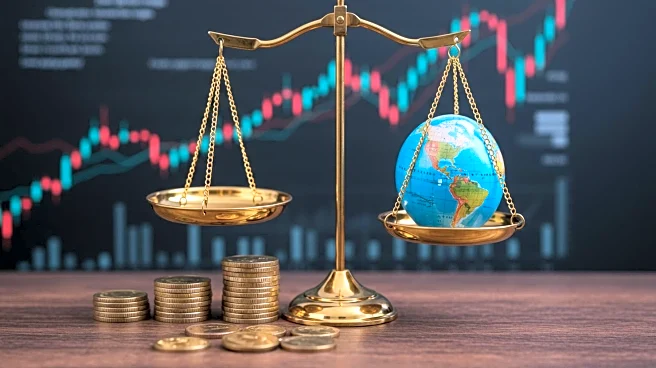What's Happening?
The recent expropriation of Emirates Global Aluminium's (EGA) assets in Guinea serves as a significant warning for investors in resource-linked emerging markets. Guinea, a major bauxite producer, seized EGA's mine after the company failed to meet its obligation to build a local alumina refinery by 2026. This move underscores the systemic risk of state-led asset reallocations in politically unstable regions. The incident is part of a broader trend of resource nationalism, where governments in resource-rich countries demand higher value capture through in-country processing and stricter control over foreign-owned assets. This trend is not isolated, as similar disruptions have been seen with China's export restrictions on rare earth elements and Russia's nickel market during the Ukraine conflict.
Why It's Important?
The expropriation in Guinea highlights the increasing geopolitical and regulatory volatility in critical mineral supply chains, posing significant risks to investors. As countries like China and Russia leverage their control over essential resources, the global supply chain becomes more fragile. This volatility can lead to sudden value loss for investors, emphasizing the need for diversified investment strategies. The situation also underscores the importance of ethical sourcing and environmental compliance, as companies with robust ESG frameworks are better positioned to navigate these challenges. The growing demand for critical minerals, driven by the global energy transition, further complicates the investment landscape, making resilience and adaptability crucial for long-term success.
What's Next?
Investors are advised to diversify their portfolios geographically and across different commodities to mitigate risks associated with regulatory shifts and state-led asset reallocations. Emphasizing circular economies and recycling can reduce dependency on primary extraction, while regional partnerships and domestic production initiatives in the U.S. and EU offer new opportunities. Financial instruments like commodity futures and options can hedge against price volatility, and ESG-driven investing is becoming increasingly essential. As the demand for critical minerals continues to rise, investors must focus on resilience and innovation to thrive in this volatile environment.
Beyond the Headlines
The expropriation in Guinea is a reflection of a larger shift towards resource nationalism and trade fragmentation, which could have long-term implications for global supply chains. The focus on in-country processing and stricter environmental regulations may lead to increased costs and operational challenges for foreign investors. Additionally, the geopolitical leverage exerted by countries like China through control over critical mineral processing could reshape global trade dynamics, affecting industries reliant on these resources. The evolving regulatory landscape requires investors to be more proactive in adapting their strategies to ensure sustainable growth.










